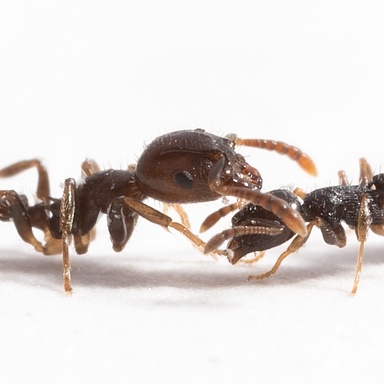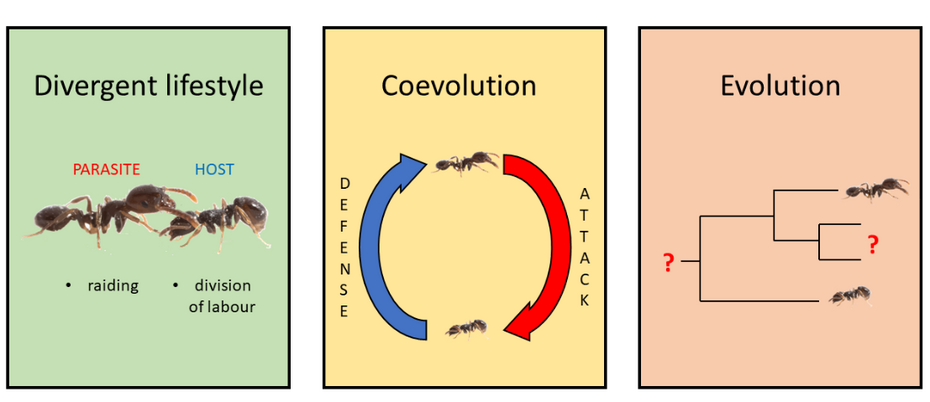Project A.01

- PhD student: Marah Stoldt
- Supervisor: Susanne Foitzik
- Further TAC-members: Romain Libbrecht , Barbara Feldmeyer (Senckenberg BiK-F)
- Research Group
I study the role of gene expression in Temnothorax ants with a special focus on phenotypic plasticity. I compare tissue-specific gene expression in ants showing different behavioral or life history phenotypes to investigate which genes are involved. A fascinating aspect of this genus is that it contains multiple independent origins of slave-making behavior. How slavery in ants evolved, how parasites and hosts differ and how they co-evolve is one of my main research interests.
Slavemaking ants are social parasites that enslave other ant species to perform the usual worker chores for them. Obligate slavemakers have lost the ability to care for themselves and completely rely on raiding host nests for brood to replenish their workforce. I worked on several studies involving the analysis of gene expression data with a focus on slavemaking ants. I investigated differences in gene expression between different castes, sexes and developmental stages in Temnothorax americanus, a slavemaking ant, and its main host, Temnothorax longispinosus (Gstöttl et al. 2020), as well as possible overlap in gene expression between both species performing a similar behavior of tandem recruitment during nest relocation and raiding (Alleman et al. 2019). I also studied the influence of parasite prevalence in the host and the slavemaker population on the brain gene expression of a host facing a slavemaker (Kaur et al. 2019). For the remaining time of my Ph.D. I will focus my work on another form of social parasitism: Inquiline ants have even lost the worker caste completely and only produce sexuals, while their brood is being raised by the workers of the host nest with which they coexist. Thus, it was often hypothesized that slavemaking behavior would be an intermediate step during the evolution to inquilinism. We want to test this hypothesis by sequencing, assembling and annotating the genomes of in total four new species of the genus Temnothorax, one inquiline, two slavemakers and one host. Together with already published genomes of this North American Temnothorax clade, we will create a phylogenetic tree to accept or reject the hypothesis that inquilinism arises through slavemaking behavior as an intermediate step.
